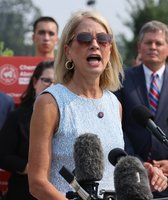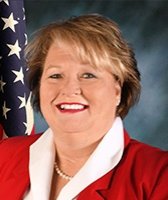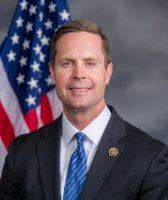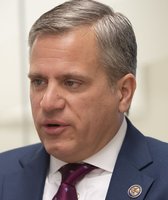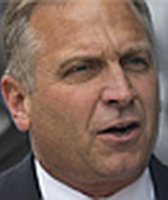Stand up for the facts!
Our only agenda is to publish the truth so you can be an informed participant in democracy.
We need your help.
I would like to contribute
No, Chicago’s pre-K program is not in decline
Mayor Rahm Emanuel has long made improving early-childhood education a cornerstone of his agenda.
In 2013, his administration made universal full-day kindergarten a reality. Since then, he has pushed to expand access to pre-kindergarten as well. And this spring, he announced plans for achieving free, full-day pre-K for all four-year-olds by 2021.
So it caught our attention when Cook County Circuit Court Clerk Dorothy Brown, one of a large crop of potential candidates looking to challenge the mayor in next year’s city election, declared preschool in Chicago has slipped under Emanuel’s watch.
"We need to have a funded pre-K," Brown said during a WGN radio interview. "Pre-K has gone down since the current mayor took office. By the time children get to the first grade, they’re already behind if they have not had pre-K."
Brown’s provocative statement offered little by way of context and left a number of questions hanging.
Did she mean preschool funding had decreased? That enrollment had fallen? Or was she suggesting the program overall was spiraling?
We decided to check.
A numbers argument
A spokeswoman for Brown’s campaign said Brown was referring to overall pre-K enrollment figures and pointed us to a Chicago Teachers Union press release published in May following Emanuel’s announcement that he plans to roll out universal full-day preschool for all four-year-olds.
The CTU, a longtime adversary of the mayor’s, blasted Emanuel for allowing enrollment to slip by 18 percent since taking office.
Indeed, there were 19,441 preschoolers enrolled at the beginning of the 2017-2018 school year—4,264 fewer than there were in the 2010-11 school year at the tail end of which Emanuel became mayor.
But while the CTU—and Brown by extension—are correct about the pre-K enrollment decrease, that decline alone doesn’t necessarily prove her broader point that CPS’ preschool program is headed in the wrong direction under Emanuel.
For one thing, enrollment throughout the district has declined overall in recent years, meaning some drop in the number of preschool students isn’t surprising.
Quantity vs. quality
More importantly, though, focusing on that enrollment decrease alone doesn’t account for a significant—and positive—change in Chicago’s preschool landscape that has occurred since Emanuel took office in 2011. Back then, full-day pre-K programs run by the district were virtually nonexistent, according to Arthur Reynolds, an early-education expert at the University of Minnesota who has studied full-day preschool in Chicago.
The increase in the number of spaces available inside full-day preschool classrooms since 2012 is "enormous," Reynolds wrote in an email. "Now this is the model for the city."
Indeed, full-day public pre-K slots have risen by roughly 75 percent since Emanuel took office, according to the city.
A spokeswoman for the mayor’s office also noted that spots in such programs are now in greater demand than those in part-day programs.
"Under Mayor Emanuel’s leadership, Chicago has shifted its approach to offer as many full-day opportunities as possible, because research shows that they provide a stronger academic foundation for children and better meet the needs of working families," spokeswoman Lauren Markowitz wrote in an email.
In pursuing that goal, Markowitz said, CPS has increased the total number of full-day seats in Chicago's public pre-K programs from about 10,000 in 2011 to more than 17,500 today.
Those figures include approximately 10,000 full-day seats available annually at district-authorized community-based organizations. Prior to Emanuel’s first term, full-day programs run directly by CPS were almost nonexistent.
Full-day and half-day
So what’s with the decrease?
In order to ramp up the number of full-day spots, Markowitz explained, CPS has converted some classrooms that served two half-day sessions into full-day ones, which reduces the number of kids served at those locations by half. They’ve been adding new full-day classes too, though not at a rate fast enough to counteract the overall decline in capacity at CPS-operated programs, which pencils out to about 14 percent.
But many education experts agree, as the mayor’s office contends, that the benefits of high-quality, full-day preschool programs are worth investing in, even though overall enrollment may fall in the process.
In a 2014 study of children attending preschool at child-parent centers that serve low-income communities in Chicago, for instance, Reynolds and his colleagues found full-day preschool was associated with higher levels of school readiness and better attendance than half-day programs.
In light of the research guiding the mayor’s plan, we followed up with Brown to clarify her stance on full-day preschool expansion.
Her spokeswoman sent a statement from the candidate that attempted to have it both ways.
"Any decrease in the numbers of our children able to access high-quality early educational options is unacceptable," Brown’s statement said. "I am supportive of full-day preschool because it will set the bar for their entire educational experience."
Our ruling
While knocking Emanuel’s education record, Brown said "pre-K has gone down since the current mayor took office." When we sought clarity, her campaign pointed to a decline in preschool enrollment during Emanuel’s tenure.
Brown’s correct on that count, but the number of enrolled preschoolers isn’t the best way to assess the overall health of Chicago’s pre-K programming.
First, the district’s population as a whole has dropped during that period, likely contributing to that decrease.
Second, available spots in full-day preschool programs have increased by 75 percent under Emanuel, and many parents are snapping them up.
As part of that expansion process, some part-day classrooms have been converted to full-day ones, cutting the total number of students those rooms can serve. But research supports investing in full-day preschool programming, especially for lower-income children, because it helps better prepare them for school.
Brown’s campaign pointed us to numbers that are technically accurate but don’t tell the full story. We rate her claim Mostly False.
Our Sources
"Full-Day Kindergarten in Place for 2013-14 School Year," CBS Chicago, Aug. 5, 2013
"Mayor Emanuel Proposes Free Preschool For Entire City," WBEZ, May 31, 2018
"Cook County Circuit Clerk Dorothy Brown on her race for Chicago Mayor," WGN Radio, July 15, 2018
Press release, Chicago Teachers Union, May 31, 2018
Dataset: 20th-day enrollment, Chicago Public Schools, accessed July 22, 2018
Email interview: Patricia Andrews-Keenan, spokeswoman for Dorothy Brown’s campaign, July 22-26, 2018
Email interview: Arthur Reynolds, professor at the University of Minnesota, July 24, 2018
Phone and email interview: Lauren Markowitz, spokeswoman for the City of Chicago, July 24-26, 2018
Report: Full-day vs part-Day preschool intervention, Journal of the American Medical Association, Nov. 26, 2018
Browse the Truth-O-Meter
More by Kiannah Sepeda-Miller
No, Chicago’s pre-K program is not in decline
Support independent fact-checking.
Become a member!
In a world of wild talk and fake news, help us stand up for the facts.

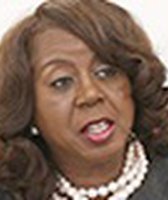


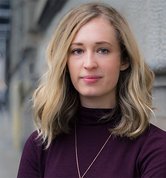

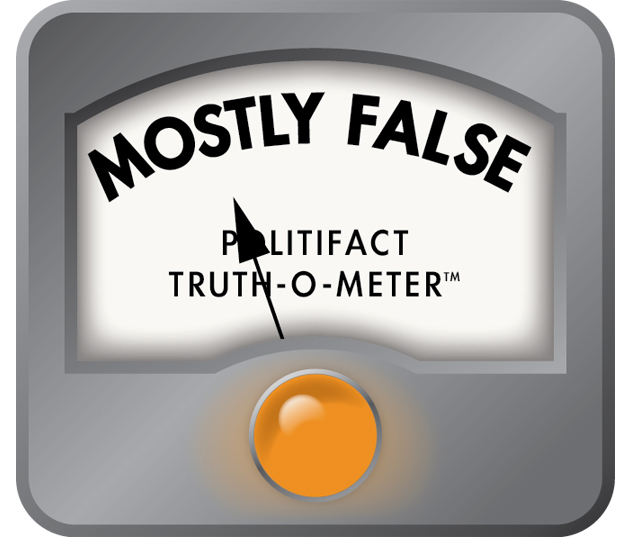 PolitiFact Rating:
PolitiFact Rating: 

